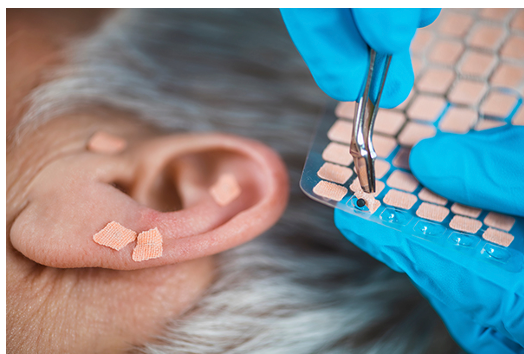Learn the Risks of Avoiding Hearing Tests

A hearing evaluation is extremely valuable as it provides an assessment of the sensitivity of your sense of hearing. A hearing screening test is usually performed by an audiologist or by another hearing care professional using an audiometer. The audiometer helps to determine your hearing sensitivity at various sound frequencies.
The most common hearing screening tests
This is one of the most common types of tests that your hearing care professional will likely order as the first step to evaluate your problem. During a pure-tone test, with the help of headphones, your audiologist plays pitches ranging from low to high to see if you can hear the sounds played. When you hear a tone, you either press a button or raise your hand. The test result shows your hearing threshold in the form of an audiogram or as a graph.
While the pure-tone test evaluates the function of the inner ears, the tympanometry hearing test assesses the functionality of your middle ear.
Your doctor may decide that a speech test is the most appropriate screening test for your needs. One helpful aspect of this test is that it can be administered in quiet or noisy environments. So if you have a hard time differentiating between speech and background noise in noisy environments, the speech test is very helpful.
Like the pure-tone test, the bone conduction test measures your inner ear's response to sounds. The biggest difference between the two testing types is that while pure-tone audiometry uses headphones, bone conduction tests use a headband to deliver the sounds.
This test is designed to assess your middle ear. One of its advantages is that it helps identify the type of hearing loss you have and the exact location of the problem.
This is a specific type of hearing evaluation that helps your audiologist determine if your symptoms are due to a problem with your auditory nerves or a neurological disorder.
The purpose of this test is to figure out how well the hair cells in your inner ear are functioning.
Why do people avoid getting hearing tests?
Several reasons explain why people avoid getting their hearing tested. First, instead of considering hearing tests as a screening, most think of them as exams for those with age-related troubles. They don't realize that audiologists can uncover various medical problems well beyond hearing loss when they test your ears.
Another reason for the lack of testing is that many people are unaware of having any hearing issues. Since hearing loss mainly occurs gradually and over time - such as with age-related hearing loss -, it is not always easy to recognize the severity of the problem.
Finally, facing the reality of declining hearing abilities can be difficult. Some may feel embarrassed or concerned about the possible stigma associated with the condition, while others may dislike the idea of wearing a hearing aid.
What are the risks of not having a hearing test?
Missing the diagnosis of underlying medical conditions
One of the top risks of not seeing an audiologist to get your ears checked is that you may miss the diagnosis of certain medical conditions. For instance, diabetes may be at the root of hearing loss, which means addressing diabetes may help resolve your hearing problem.
High blood pressure is another medical condition that has been linked to tinnitus (ringing in the ear) and loss of hearing. Getting a hearing test done may help your doctor identify the underlying cause and recommend treatment for a medical condition you did not even know you had.
Without regular hearing tests, you won't know how bad your hearing loss actually is and if it is getting worse
Many people get their vision checked annually to track their eye health. Approaching hearing tests in the same manner is beneficial as it allows you to keep a close tab on how quickly your hearing loss progresses. Book regular appointments with your hearing professional and avoid suffering unnecessarily from hearing impairment.
Your audiologist can compare your past audiograms to your current ones. If there is any sign of concern, i.e., worsening hearing loss, your hearing specialist can alert you, take the necessary actions, and quickly address concerns such as ear infection, earwax buildup, problems with your ear canal, eardrum, or noise-induced hearing loss.
As you can see, the downside of not getting a hearing test done is much greater than getting screened. In fact, catching a mild hearing issue early can help prevent your hearing loss from getting worse. A knowledgeable hearing care professional can guide you through the process and help you find the best possible solution for you.















